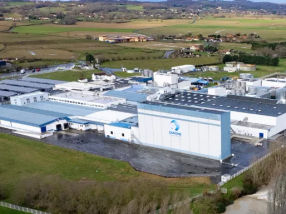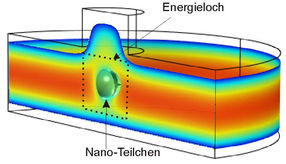Oilseed processing: Germany is European champion
Nevertheless, energy costs are a burden
Advertisement
Germany plays a central role in the processing of oilseeds in Europe. Last year, oil mills across Europe processed a total of 49.7 million tons of oilseeds, including Rapeseed, soya, sunflower and linseed. Germany made a significant contribution to this by processing around 13 million tons. This corresponds to a 26 percent share of the total European processing volume. Domestic rapeseed processing is particularly significant on a European scale: at 9.5 million tons, around one in three rapeseed grains processed in Europe passed through a German oil mill.

Germany processes the most oilseeds in Europe.
OVID Verband der ölsaatenverarbeitenden Industrie in Deutschland e. V.
"Germany is the heart of the European oil mill industry. However, despite these impressive figures, the industry is currently facing huge challenges that will have an impact on its future competitiveness and future security," explains OVID President Jaana Kleinschmit von Lengefeld.
High energy costs and bureaucracy: urgent need for action
Energy costs are decisive for the production costs of oil mills. Energy prices are not only a burden on business management, but also jeopardize the market position of German companies in international comparison. In addition, increasing bureaucracy is creating additional work and inefficient processes that further restrict companies' scope for action.
Position paper calls for urgent measures
In the recently published position paper "Oil change now!", OVID urges effective political measures to overcome these challenges. The energy-intensive industry urgently needs support in order to assert itself in international competition and to master the transformation towards energy-efficient and climate-friendly technologies. This includes, among other things
- Competitive gas prices: The focus of political measures is currently on reducing electricity costs. However, high gas prices are a significant location factor for process heat-intensive sectors such as the oilseed processing industry, as around three quarters of oilseed processing is based on natural gas. The association is calling on politicians to introduce a follow-up regulation for the peak equalization for gas in the Energy Tax Act, which has been abolished since 2024. The abolition of this tax concession, which previously existed for over 20 years, is hitting the industry hard.
Note: This article has been translated using a computer system without human intervention. LUMITOS offers these automatic translations to present a wider range of current news. Since this article has been translated with automatic translation, it is possible that it contains errors in vocabulary, syntax or grammar. The original article in German can be found here.



































































